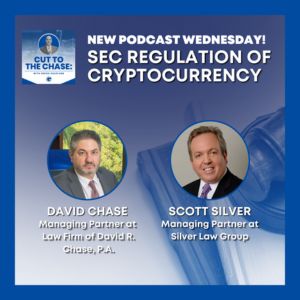Scott Silver And David Chase Make Third Appearance As Guests On ‘Cut To The Chase’ Legal Podcast
 Following appearances in 2021 and February, 2023, SEC whistleblower attorneys Scott Silver and David Chase were again invited back to the ‘Cut To The Chase’ legal podcast. The podcast is hosted by Miami attorney and entrepreneur Gregg Goldfarb, who discusses legal and public interest news with authorities in their field.
Following appearances in 2021 and February, 2023, SEC whistleblower attorneys Scott Silver and David Chase were again invited back to the ‘Cut To The Chase’ legal podcast. The podcast is hosted by Miami attorney and entrepreneur Gregg Goldfarb, who discusses legal and public interest news with authorities in their field.
 Securities Arbitration Lawyers Blog
Securities Arbitration Lawyers Blog


 Wealthy Russians are attempting to get their money out of the country are spending their cash on valuable assets to bypass U.S. sanctions against the country.
Wealthy Russians are attempting to get their money out of the country are spending their cash on valuable assets to bypass U.S. sanctions against the country. While allegations of
While allegations of  The law is clear on this point: If you are a whistleblower who reports a possible violation to the Securities and Exchange Commission (SEC), the company cannot retaliate against you.
The law is clear on this point: If you are a whistleblower who reports a possible violation to the Securities and Exchange Commission (SEC), the company cannot retaliate against you. Under the law, the Securities and Exchange Commission (SEC) can investigate and enforce violations of the nation’s securities laws.
Under the law, the Securities and Exchange Commission (SEC) can investigate and enforce violations of the nation’s securities laws.  In financial industry, two of the principal agencies tasked with ensuring the U.S. financial markets’ stability and integrity are the U.S. Securities and Exchange Commission (SEC) and the U.S. Commodity Futures Trading Commission (CFTC). The CFTC ensures that commodity futures and options exchanges have policies that protect investors in the market and ensure fair trading free from fraud and manipulation.
In financial industry, two of the principal agencies tasked with ensuring the U.S. financial markets’ stability and integrity are the U.S. Securities and Exchange Commission (SEC) and the U.S. Commodity Futures Trading Commission (CFTC). The CFTC ensures that commodity futures and options exchanges have policies that protect investors in the market and ensure fair trading free from fraud and manipulation.  Law.com and Daily Business Review interviewed Scott Silver, Silver Law Group’s managing partner, regarding a $1.8M SEC whistleblower award he helped secure for a client. The client provided crucial information that led the SEC to recover millions of dollars for investors.
Law.com and Daily Business Review interviewed Scott Silver, Silver Law Group’s managing partner, regarding a $1.8M SEC whistleblower award he helped secure for a client. The client provided crucial information that led the SEC to recover millions of dollars for investors. Silver Law Group represents a Securities and Exchange Commission (SEC) whistleblower who was awarded $1.8 million by the SEC for providing information that led to the collection of millions of dollars from two brokerage firms.
Silver Law Group represents a Securities and Exchange Commission (SEC) whistleblower who was awarded $1.8 million by the SEC for providing information that led to the collection of millions of dollars from two brokerage firms.